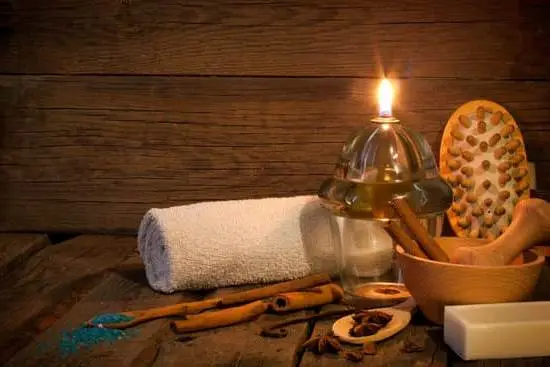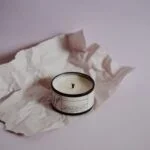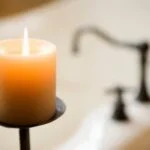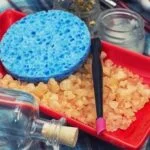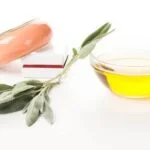What is aromatherapy for hair? Aromatherapy has been used for centuries to promote wellness and relaxation, but its benefits for hair are often overlooked.
In this article, we will delve into the world of aromatherapy for hair and explore its history, benefits, essential oils, DIY recipes, addressing specific hair concerns, expert tips, and more. Whether you’re dealing with dryness, frizz, or just want to improve the overall health and appearance of your hair, aromatherapy may be the solution you’ve been searching for.
Aromatherapy is a holistic healing treatment that uses natural plant extracts to promote health and well-being. It dates back to ancient civilizations such as the Egyptians and Greeks who used essential oils for medicinal and cosmetic purposes. Today, aromatherapy has evolved into a popular alternative remedy for various ailments including stress relief, mood enhancement, skincare, and of course – hair care.
The benefits of aromatherapy for hair are vast and varied. From promoting healthy hair growth to balancing scalp oil production and preventing dandruff, the use of essential oils in aromatherapy can address a wide range of hair concerns without harsh chemicals or side effects. In the following sections of this article, we will explore these benefits in greater detail and provide tips on incorporating aromatherapy into your daily hair care routine.
The History and Origins of Aromatherapy
Aromatherapy has been used for centuries to promote hair health and overall well-being. The practice of using aromatic botanicals for medicinal and therapeutic purposes can be traced back to ancient civilizations such as the Egyptians, Greeks, and Romans. These cultures recognized the powerful healing properties of essential oils and incorporated them into their hair care routines.
The history of aromatherapy dates back thousands of years, with the earliest recorded use of aromatic plants for their healing properties found in ancient Egypt. In fact, essential oils were used in embalming practices and in religious ceremonies due to their potent fragrance and believed spiritual significance.
The Greeks also embraced the use of aromatic plants and essential oils for medicinal purposes, often using them to create perfumes and scented oils for both beauty and wellness rituals. Additionally, the Romans adopted these practices from the Greeks and expanded the use of essential oils in bathing, massage, and skin care.
The origins of aromatherapy as it is known today can be attributed to René-Maurice Gattefossé, a French chemist who coined the term “aromatherapy” in 1937. Gattefossé discovered the healing properties of lavender oil when he accidentally burned his hand while working in his laboratory.
This led him to delve deeper into studying the therapeutic benefits of essential oils, leading to the development of modern aromatherapy practices that are now widely used for hair care and overall wellness. Today, aromatherapy continues to evolve as more research is conducted on its benefits for hair health, making it a popular alternative approach for maintaining healthy, beautiful hair.
- Ancient Egyptian Use
- Greek Influence on Aromatics
- René-Maurice Gattefossé’s Contribution
Understanding the Benefits of Aromatherapy for Hair
Aromatherapy is the practice of using essential oils to enhance physical and mental well-being. When it comes to hair care, aromatherapy offers a range of benefits that can improve the overall health and appearance of your locks. From promoting hair growth to reducing dandruff, incorporating aromatherapy into your hair care routine can be a game changer.
Stimulates Hair Growth
One of the most significant benefits of aromatherapy for hair is its ability to stimulate hair growth. Certain essential oils like rosemary, peppermint, and cedarwood are known for their hair-boosting properties. These oils can help improve blood circulation in the scalp, which in turn promotes healthy hair growth.
Conditions and Moisturizes
Aromatherapy oils are also excellent natural conditioners for the hair. Oils such as lavender, geranium, and ylang-ylang have moisturizing properties that can help nourish dry and brittle hair. By regularly using these oils in your hair care routine, you can achieve softer, more manageable tresses.
Calms and Soothes the Scalp
Many essential oils used in aromatherapy have soothing properties that can benefit the scalp. Oils like chamomile, tea tree, and lavender are known for their calming effects, making them ideal for addressing scalp issues such as itchiness or inflammation. By incorporating these oils into your scalp massage or hair treatment, you can address these concerns naturally.
Incorporating aromatherapy into your hair care routine can provide a multitude of benefits that cater to various hair concerns. From promoting growth to soothing the scalp, these natural remedies offer a holistic approach to achieving healthy and beautiful locks.
Essential Oils
Aromatherapy for hair involves the use of essential oils, which are the foundation of this holistic approach to hair care. These essential oils are derived from various plants and have been used for centuries due to their therapeutic properties. Each essential oil has its own unique benefits for the hair and scalp, making them valuable components of aromatherapy for hair.
Some key essential oils used in aromatherapy for hair include:
- Lavender oil: Known for its calming and soothing properties, lavender oil is often used to promote relaxation and stress relief, which can help with overall hair health.
- Rosemary oil: This essential oil is believed to stimulate hair growth and improve circulation to the scalp, making it a popular choice for individuals looking to address thinning or brittle hair.
- Peppermint oil: With its refreshing and cooling sensation, peppermint oil can help alleviate itchiness and dryness on the scalp while also promoting a healthy environment for hair growth.
When using essential oils in aromatherapy for hair, it’s crucial to dilute them properly with a carrier oil such as coconut, jojoba, or argan oil. This helps ensure that the essential oils are not too potent when applied directly to the scalp and hair. Additionally, understanding the specific benefits of each essential oil can guide individuals in creating personalized blends tailored to their unique hair concerns.
It’s important to note that some essential oils may not be suitable for everyone, especially those with sensitive skin or certain medical conditions. Before incorporating any new essential oils into your hair care routine, it is advisable to perform a patch test and consult with a healthcare professional if you have any underlying health concerns.
How to Use Aromatherapy for Hair
The use of aromatherapy for hair has become increasingly popular as people seek natural alternatives for hair care. Aromatherapy involves using essential oils derived from plants to improve the health and appearance of the hair and scalp. By incorporating DIY recipes and techniques into your hair care routine, you can experience the benefits of aromatherapy and promote overall hair wellness.
DIY Recipes
One way to utilize aromatherapy for hair is by creating your own DIY hair care products using essential oils. For example, you can mix a few drops of lavender or rosemary essential oil with a carrier oil such as coconut or jojoba oil to create a nourishing scalp massage oil.
This can help stimulate the scalp, promote healthy hair growth, and reduce dandruff. Additionally, adding a few drops of your favorite essential oil to your shampoo or conditioner can enhance the fragrance and provide additional benefits for your hair.
Aromatherapy Techniques
Incorporating aromatherapy techniques into your hair care routine can also be beneficial. One simple technique is to add a few drops of essential oil to a bowl of steaming hot water, then lean over the bowl with a towel covering your head to trap the steam. This allows the aromatic steam to infuse your hair and scalp while promoting relaxation and providing therapeutic benefits.
Safety Considerations
When using aromatherapy for hair, it’s important to consider safety precautions. Essential oils are highly concentrated and should be diluted before applying them directly to the skin or scalp. Additionally, some essential oils may cause allergic reactions in certain individuals, so it’s recommended to perform a patch test before widespread use. Always follow proper dilution guidelines and consult with a healthcare professional if you have any underlying health conditions or concerns regarding essential oil usage.
By exploring DIY recipes and incorporating aromatherapy techniques into your regular hair care routine, you can experience the holistic benefits that essential oils offer for healthy, beautiful hair.
Aromatherapy for Hair
When it comes to using aromatherapy for hair, there are specific essential oils that can address different hair concerns. Whether you are dealing with dry, damaged, oily, or thinning hair, there is an essential oil that can help nourish and revitalize your locks. Here are some common hair concerns and the essential oils that can help address them:
1. Dry Hair: For those with dry and brittle hair, using essential oils like lavender, rosemary, or sandalwood can help moisturize and nourish the scalp and hair shaft.
2. Oily Scalp: If you struggle with excess oil production on your scalp, consider using tea tree oil, peppermint, or lemon essential oil to balance oil production and clarify the scalp.
3. Damaged Hair: Essential oils such as cedarwood, chamomile, or ylang-ylang are known for their ability to strengthen and repair damaged hair strands.
Incorporating these essential oils into your hair care routine through DIY recipes or by adding a few drops to your regular shampoo or conditioner can make a noticeable difference in addressing specific hair concerns.
Remember that essential oils are highly concentrated and should be diluted with a carrier oil before applying them directly to the scalp or hair. It’s also important to do a patch test before using any new essential oil to ensure that you do not have an allergic reaction.
Expert Tips for Incorporating Aromatherapy Into Your Hair Care Routine
When it comes to incorporating aromatherapy into your hair care routine, there are a few expert tips that can help you get the most out of this practice. First and foremost, it’s important to choose high-quality essential oils that are known for their beneficial properties for hair. Look for oils like lavender, rosemary, peppermint, and cedarwood, as these are known to promote hair growth, reduce dandruff, and improve overall scalp health.
Another expert tip is to dilute your chosen essential oils with a carrier oil before applying them to your hair and scalp. Carrier oils like coconut oil, jojoba oil, and argan oil not only help to dilute the essential oils but also provide their own nourishing benefits to the hair and scalp. This also helps to prevent any potential skin irritation that may occur from applying undiluted essential oils directly to the skin.
Finally, when using aromatherapy for your hair, it’s important to remember that a little goes a long way. Essential oils are highly concentrated, so you only need a few drops to experience their benefits. Overusing essential oils can lead to overwhelming scents and potential irritation, so be sure to use them sparingly in your hair care routine.
| Expert Tip | Description |
|---|---|
| Choose High-Quality Oils | Look for lavender, rosemary, peppermint, and cedarwood oils |
| Dilute Essential Oils | Use carrier oils like coconut oil or jojoba oil |
| Use Sparingly | Only a few drops of essential oils are needed per use |
Final Thoughts
In conclusion, aromatherapy for hair is a holistic and natural approach to maintaining healthy, beautiful hair. With its roots in ancient civilizations and traditional medicine, aromatherapy has stood the test of time as an effective way to address various hair concerns. The use of essential oils as the key players in aromatherapy for hair has been proven to nourish the scalp, promote hair growth, and improve overall hair health.
Many people have turned to DIY recipes and techniques to incorporate aromatherapy into their hair care routine. Whether it’s creating a custom blend of essential oils for a scalp massage or adding a few drops to your shampoo and conditioner, there are endless possibilities for reaping the benefits of aromatherapy for hair. From addressing dandruff and frizz to stimulating hair follicles and adding shine, aromatherapy can be customized to meet individual needs.
Expert tips for incorporating aromatherapy into your hair care routine include seeking guidance from professionals, conducting patch tests before applying essential oils directly to the scalp, and being mindful of potential allergies or sensitivities. By embracing the power of aromatherapy for healthy, beautiful hair, individuals can elevate their self-care routine and experience the therapeutic effects of these natural plant extracts.
Overall, the combination of ancient wisdom and modern knowledge has solidified aromatherapy as a valuable tool in achieving optimal hair health.
Frequently Asked Questions
Is Aromatherapy Good for Your Hair?
Aromatherapy can be beneficial for hair health in various ways. Certain essential oils used in aromatherapy have been found to promote hair growth, strengthen hair follicles, reduce dandruff, and improve overall scalp health. Additionally, the soothing and calming properties of some essential oils can help alleviate stress, which is known to contribute to hair loss.
What Is Aroma Treatment for Hair?
Aroma treatment for hair involves using essential oils derived from plants to nourish and enhance the health of the scalp and hair. This treatment typically involves diluting essential oils with a carrier oil and massaging the mixture into the scalp.
The aroma of the oils also provides relaxation benefits, making it a holistic approach to improving both the physical and mental aspects of hair care.
What Are the Top 5 Essential Oils for Hair Growth?
Some of the top essential oils for promoting hair growth include rosemary oil, peppermint oil, lavender oil, cedarwood oil, and tea tree oil. These oils have been shown to stimulate blood flow to the scalp, balance natural oil production, reduce inflammation, and combat bacteria that can hinder hair growth.
When used consistently and properly, these essential oils can contribute to thicker, healthier hair over time.

Are you looking for a natural way to improve your health and wellbeing?
If so, aromatherapy may be the answer for you.

